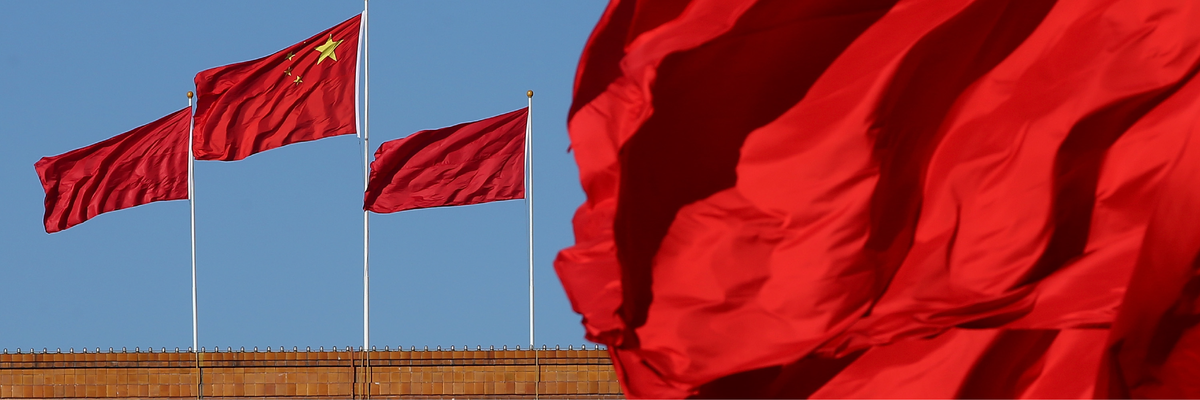Boris Johnson is famous not only for wanting to eat his cake and have it but for boasting that he can. The rest of us, mere mortals, tend to have to choose. His critics point out that we all do and he gets himself – and us – into trouble when he pretends that he doesn’t. This accusation has been levelled again this week with the much heralded announcement of the government’s policy towards China. His opponents say it’s another ‘cake’ absurdity. Do you agree?
The new policy on China was outlined within a much bigger document aimed at setting out Britain’s global strategy in the new predicament in which we find ourselves post-Brexit. Global Britain in a Competitive Age is the first of two statements of intent: next week we’re going to hear what the defence implications of it all might be.
With regard to China it is clear that Britain now regards the emerging superpower in a very different light to the one in which it was seen by David Cameron’s government only ten years ago. Then, China was going to be our friend. Or at least we were looking forward to a ‘golden era’ in our relationship with the country that looks set to dominate the twenty-first century. Now it’s not so chummy. In the new strategy document, China is described as the ‘biggest state-based threat’ to Britain’s economic security and as posing a ‘systemic challenge’ to our prosperity and values. In other words, China is now Enemy Number One, or at least Number Two, if the economically far weaker Russia still holds the top spot.
At the same time, however, Mr Johnson hopes for ‘deeper trade links and more Chinese investment’ in the British economy. This is what has led his critics, many on his own backbenches, to think we’re back in cake land.
Few dispute the assessment of the threat China is seen as posing to Britain. In the ten years since Mr Cameron was downing pints with the Chinese president, Xi Jinping, in an Oxfordshire pub and ushering him round Old Trafford, the hallowed ground of the president’s favourite football team, Chinese behaviour in the world has changed markedly. It has become far more assertive, both in using ‘soft’ and economic power to increase its influence all round the globe, and militarily, most notably in the South China Sea, where it has turned islands and atolls whose ownership is a matter of international dispute into military bases to promote its power. And it has shown itself willing unilaterally to rip up agreements it has entered into in order to pursue what it sees as its own interests. This has happened most notably in Hong Kong where it has annulled the ‘one country, two systems’ deal it made with Britain to protect the former British colony’s democratic system at least until 2047. Protest is being trodden underfoot. And Beijing is also rattling sabres over Taiwan more aggressively than at any time since the Communist Party took control of China in 1949. Speculation about a military invasion is no longer regarded as fanciful.
Sir Alex Younger, the former chief of MI6, defined the new predicament succinctly in a Times article earlier this week. He wrote: ‘I reject that we are on an inevitable track to a new cold war … But we should not dodge the fact that we are in a fierce competition and in some cases in a vital contest. Whoever loses will face reduced control over their own future. China understands this well. And, from a western point of view, the trajectory is not looking good.’
It’s in this context that the Prime Minister’s critics think his China policy doesn’t add up. They concede his point that there are global problems – global warming being the most obvious – which cannot be tackled without trying to cooperate with China. But it’s his enthusiasm for ‘deeper’ trade and ‘more’ Chinese investment they challenge.
David Cameron’s love-in with President Xi led to a massive increase in China’s involvement in some major infrastructure projects. One of them involved huge Chinese investment in the building of a new nuclear power station in Somerset, with the prospect of another in Essex. When she took over from him, Theresa May was so alarmed by the implications of this – put bluntly, that China might gain the means to turn our electricity supply on and off – that one of the first things she did was to order a suspension and a review. In the end, she decided to let it go ahead, but her actions showed how the British government’s attitude to Chinese investment was changing.
It wasn’t just nuclear power. China was getting stuck in, financially, to many aspects of our national life – most notably by funding university expansion, thus raising worries about academic freedom, and in the involvement of the Chinese company, Huawei, in the development of the 5G broadband network. The Tory government dithered and delayed but finally, under American pressure, severely curtailed the extent of Huawei’s contribution. Now, however, Mr Johnson wants ‘more’ Chinese investment. And also ‘deeper’ trade links.
There’s no doubt that increased trade with China over the last twenty years or so has had huge benefits for Britain. The vast imports of cheaply-produced Chinese goods has made clothing, to name just one sector, much less expensive to British consumers and has helped to keep inflation at historically low levels. The newly-opened China has also provided opportunities for our exporters. The Prime Minister is seemingly indifference to the threat to our exports in our closest and largest market: a post-Brexit Europe. Given that and given his belief that ‘Global Britain’s’future rests on trade deals elsewhere in the world, it’s not surprising he wants ‘deeper’ trade with China.
But that’s not what many of his own backbenchers want. Last year many of them formed that most ominous thing for a Conservative prime minister, a ‘research group’. The China Research Group of Tory MPs exists to make British policy towards China conform to what it sees as the clear, new reality about China: the threat it poses.
The CRG’s deep scepticism about closer trade and investment ties derives not just from alarm at what China is doing in the world, but also what it is doing at home. The mass internment of over a million Muslim Uighurs in the western province of Xinjiang is only the most egregious of the human rights abuses of which they believe the Chinese government is guilty. Ten years ago George Osborne, then Mr Cameron’s chancellor of the exchequer, raised eyebrows by agreeing to let his Chinese hosts whisk him off to Xinjiang, an event the Chinese clearly saw as a propaganda coup in that it implied that Britain and the West more generally were happy to turn a blind eye to these abuses if trade deals were up for grabs. The CRG and others are saying that in the light of what we’ve learned about China over the ensuing ten years, we simply can’t continue to turn the blind eye.
The issue of whether human rights (and our alarm at the state of human rights in other countries) and trade should be linked or kept entirely separate is not new, of course. Years ago, when the issue was raised in an interview with Enoch Powell, one of the most prominent Tory politicians of the latter half of the twentieth-century, he replied with a rhetorical question: ‘Why must I be required to approve his political dispositions before buying sultanas from the Grand Turk?’
Well… they don’t make ‘em like that any more, but the sentiment seems to be shared by the current foreign secretary, Dominic Raab. In a leaked video he was recorded telling his officials that Britain would seek trade deals with countries that violated international standards on human rights, and that if it tried to restrict trade only to countries following European standards it would miss out on ‘growth markets’ of the future. A foreign office spokesman claimed his boss had had his remarks taken out of context and that ‘the UK always stands up for and speaks out on human rights’.
But can it do so and still trade with China? One Tory China hawk, the MP Julian Lewis, who is chairman of the intelligence and security committee, clearly remains sceptical. After the Prime Minister had made his Commons statement on the new strategy on Tuesday, Mr Lewis asked him about his ambition for deeper trade with what he called the ‘adversary Communist China’. He said: ‘Doesn’t that unfortunately demonstrate that the grasping naivety of the Cameron-Osborne years still lingers on?’
But the former Conservative defence secretary, Michael Fallon, argues that Britain has to ‘wear two hats’ in its dealings with China. In other words, realpolitik requires a country like Britain to face both ways, even lay itself open to the charge of hypocrisy in order to pursue its multiple and often conflicting interests. Put simply: Britain has to try to eat its cake and have it.
What’s your view? Does the government policy towards China add up or not? Do you think China does pose the sort of threat to Britain articulated in the strategy document? And do you think Britain should be attempting to deepen trade with China and encourage it to invest more in this country, or do you think its behaviour both at home and in the world at large means we should try to reduce our dependence on economic links with it?
Tell us what you think






